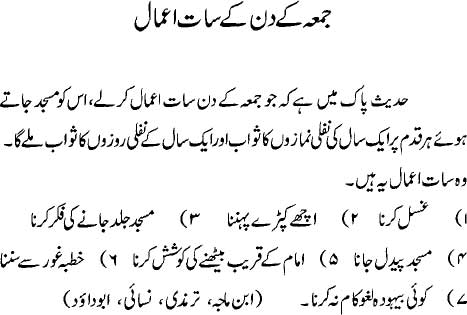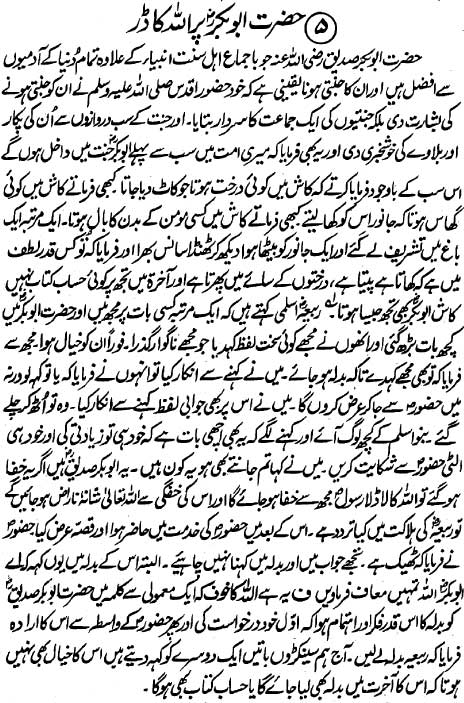
What Is Islam?
What is Islam?
Islam is an Arabic word meaning “surrender” or “submission.” It is a faith that encompasses approximately one-fifth of humanity. Its adherents reside in almost every country of the world and comprise majorities in large segments of Africa, the Middle East, the Indian subcontinent, and Asia. Approximately more than 6 million Americans follow Islam.
The Origins of Islam
The historical origins of Islam date back to seventh-century Arabia. The Prophet Muhammad (peace be upon him), an aristocratic Arabian born and raised an orphan in the sanctuary city of Makkah, experienced a revelation in his fortieth year. He began to preach to his own people, most of whom initially persecuted him. After thirteen years of suffering with patience and endurance, he migrated to the nearby city of Madinah. For over twenty-three years, beginning in 610 C.E., the Prophet orally transmitted the Qur’an. Muslims believe the Qur’an was revealed from God through the archangel Gabriel. In it, a cosmology, a theology, and an elaborate eschatology are described. By the end of the Prophet’s life in 632 C.E., almost the entire Arabian Peninsula had converted from paganism to Islam, and within a hundred years, its followers stretched from France to China.
Although considered the youngest of the three great Abrahamic faiths that include Judaism and Christianity, Islam does not view itself as a new religion but rather as a reformed Abrahamic faith. Muslims believe that the Qur’an corrects distortions of previous prophetic dispensations while not departing from the aboriginal faith of humanity, which according to the Muslims is Islam or submission to one God. While Muslims believe all prophets have taught the unity of God and that their beliefs about God were the same, their actual practices have changed to suit various times and places. According to Muslims, this is why religions tend to differ outwardly while retaining an essential inward truth common to them all. However, the Qur’an declares its message as uniquely universal applying to all people for all remaining time.
Jumma Kay Din Kay Saat Aamal

What Gives The Heart Life And Sustenance
You should know that acts of obedience are essential to the well-being of the servant’s heart, just in the same way that food and drink are to that of the body. All wrong actions are the same as poisonous foods, and they inevitably harm the heart.
The servant feels the need to worship his Lord, Mighty and Glorious is He, for he is naturally in constant need of His help and assistance.
In order to maintain the well-being of his body, the servant carefully follows a strict diet. He habitually and constantly eats good food at regular intervals and is quick to free his stomach of harmful elements if he happens to eat bad food by mistake.
The well being of the servant’s heart, however, is far more important than that of his body, for while the well being of his body enables him to lead a life that is free from illnesses in this world, that of the heart ensures him both a fortunate life in this world and eternal bliss in the next.
In the same way, while the death of the body cuts the servant off from this world, the death of the heart results in everlasting anguish. A righteous man once said, “How odd, that some people mourn for the one whose body has died, but never mourn for the one whose heart has died-and yet the death of the heart is far more serious!”
Thus acts of obedience are indispensable to the well-being of the heart. It is worthwhile mentioning the following acts of obedience here since they are very necessary and essential for the servant’s heart: Dhikr of Allah tala, recitation of the Noble Qur’an, seeking Allah’s forgiveness, making du’as, invoking Allah’s blessings and peace on the Prophet, may Allah bless him and grant him peace, and praying at night.
Allah Ki Rah Say Rokna

Poisons of the Heart: Keeping Bad Company
Unnecessary companionship is a chronic disease that causes much harm. How often have the wrong kind of companionship and intermixing deprived people of Allah’s generosity, planting discord in their hearts which even the passage of time-even if it were long enough for mountains to be worn away-has been unable to dispel. In keeping such company one can find the roots of loss, both in this life and in the next life.
A servant should benefit from companionship. In order to do so he should divide people into four categories, and be careful not to get them mixed up, for once one of them is mixed with another, then evil can find its way through to him:
The first category is those people whose company is like food: it is indispensable, night or day. Once a servant has taken his need from it, he leaves it be until he requires it again, and so on. These are the people with knowledge of Allah-of His commands, of the scheming of His enemies, and of the diseases of the heart and their remedies- who wish well for Allah, His Prophet (s), and His servants. Associating with this type of person is an achievement in itself.
The second category is those people whose company is like medicine. They are only required when a disease sets in. When you are healthy, you have no need for them. However, mixing with them is sometimes necessary for your livelihood, businesses, consultation, and the like. Once what you need from them has been fulfilled, mixing with them should be avoided.
The third category is those people whose company is harmful. Mixing with this type of person is like a disease, in all its variety and degrees and strengths and weaknesses. Associating with one or some of them is like an incurable chronic disease. You will never profit either in this life or in the next life if you have them for company, and you will surely lose either one or both of your deen and your livelihood because of them. If their companionship has taken hold of you and is established, then it becomes a fatal, terrifying sickness.
Amongst such people are those who neither speak any good that might benefit you nor listen closely to you so that they might benefit from you. They do not know their souls and consequently put their selves in their rightful place. If they speak, their words fall on their listeners’ hearts like the lashes of a cane, while all the while they are full of admiration for and delight in their own words.
They cause distress to those in their company while believing that they are the sweet scent of the gathering. If they are silent, they are heavier than a massive millstone-too heavy to carry or even drag across the floor.
All in all, mixing with anyone who is bad for the soul will not last, even if it is unavoidable. It can be one of the most distressing aspects of a servant’s life that he is plagued by such person, with whom it may be necessary to associate. In such a relationship, a servant should cling to good behavior, only presenting him with his outward appearance, while disguising his inner soul, until Allah offers him a way out of his affliction and the means of escape from this situation.
The fourth category is those people whose company is doom itself. It is like taking poison: its victim either finds an antidote or perishes. Many people belong to this category. They are the people of religious innovation and misguidance, those who abandon the sunnah of the Messenger of Allah (saws) and advocate other beliefs. They call what is the sunnah a bid’a and vice-versa. A man with any intellect should not sit in their assemblies nor mix with them. The result of doing so will either be the death of his heart or, at the very best, it’s falling seriously ill.
Allah Ki Mashiyyat Aur Raza Mein Farq Ha

Poisons Of The Heart: Too Much Food
The consumption of small amounts of food guarantees tenderness of the heart, strength of the intellect, humility of the self, weakness of desires, and gentleness of temperament. Immoderate eating brings about the opposite of these praiseworthy qualities.
Al-Miqdam ibn Ma’d Yakrib (ra) said: “I heard the Messenger of Allah (s) say: “The son of Adam fills no vessel more displeasing to Allah than his stomach. A few morsels should be enough for him to preserve his strength. If he must fill it, then he should allow a third for his food, a third for his drink and leave a third empty for easy breathing.”15
Excessive eating induces many kinds of harm. It makes the body inclined towards disobedience to Allah and makes worship and obedience seem laborious-such evils are bad enough in themselves. A full stomach and excessive eating have caused many a wrong action and inhibited much worship. Whoever safeguards against the evils of overfilling his stomach has prevented great evil. It is easier for shaytan to control a person who has filled his stomach with food and drink, which is why it has often been said: “Restrict the pathways of shaytan by fasting.”16
It has been reported that when a group of young men from the Tribe of Israel were worshipping, and it was time for them to break their fast, a man stood up and said: “Do not eat too much, otherwise you will drink too much, and then you will end up sleeping too much, and then you will lose too much.”
The Prophet (s) and his companions, may Allah be pleased with them, used to go hungry quite frequently. Although this was often due to a shortage of food, Allah decreed the best and most favorable conditions for His Messenger, may Allah bless him and grant him peace. This is why Ibn Umar and his father before him-in spite of the abundance of food available to them-modeled their eating habits on those of the Prophet (s). It has been reported that Aisha, may Allah be pleased with her, said: “From the time of their arrival in Madina up until his death (s), the family of Muhammed (s) never ate their fill of bread made from wheat three nights in a row.”17
Ibrahim ibn Adham said: “Anyone who controls his stomach is in control of his deen, and anyone who controls his hunger is in control of good behavior. Disobedience towards Allah is nearest to a person who is satiated with a full stomach, and furthest away from a person who is hungry.”
Abu Bakr (RA) Par Allah Ka Dar

Poisons Of The Heart: Unnecessary Talking
“And keep yourself (O Muhammad!) patiently with those who call on their Lord (your companions who remember their Lord with glorification, praising in prayers, etc., and other righteous deeds, etc.) morning and afternoon, seeking His Face, and let not your eyes overlook them, desiring the pomp and glitter the life of the world; and obey not him whose heart We have made heedless of Our Remembrance, one who follows his own lusts and whose affair (deeds) has been lost.” The Holy Quran: 18:28.
You should know that all acts of disobedience are poison to the heart and cause its sickness and ruin. They result in its will running off course, against that of Allah, and so its sickness festers and increases. Ibn al-Mubarak said: I have seen wrong actions killing hearts, And their degradation may lead to their becoming addicted to them. Turning away from wrong actions gives life to the hearts, And opposing yourself is best for it.
Whoever is concerned with the health and life of his heart, must rid it of the effects of such poisons, and then protect it by avoiding new ones. If he takes any by mistake, then he should hasten to wipe out their effect by turning in repentance and seeking forgiveness from Allah, as well as by doing good deeds that will wipe out his wrong actions.
Unnecessary Talking
It is reported in al-Musnad, on the authority of Anas (ra – may Allah be pleased with him), that the Prophet (may the peace & blessings of Allah be upon him) said: “The faith of a servant is not put right until his heart is put right, and his heart is not put right until his tongue is put right.”1 This shows that the Prophet (may the peace & blessings of Allah be upon him) has made the purification of faith conditional on the purification of the heart, and the purification of the heart conditional on the purification of the tongue.
At-Tirmidhi relates in a hadith (sayings or doings of the Prophet Mohammed) on the authority of Ibn Umar (ra): “Do not talk excessively without remembering Allah, because such excessive talk without the mention of Allah causes the heart to harden, and the person furthest from Allah is a person with a hard heart.” 2
Umar Ibn al-Khattab, may Allah be pleased with him, said: “A person who talks too much is a person who often makes mistakes, and someone who often makes mistakes, often has wrong actions. The Fire has a priority over such a freqent sinner.” 3
In a hadith related on the authority of Mu’adh (ra), the Prophet (s) said, “Shall I not tell you how to control all that?” I said, “Yes do, O Messenger of Allah.” So he held his tongue between his fingers, and then he said: “Restrain this.” I said, “Oh Prophet of Allah, are we accountable for what we say?” He (s) said, “May your mother be bereft by your loss! Is there anything more than the harvest of the tongues that throws people on their faces (or he said ‘on their noses) into the Fire?” 4
What is meant here by ‘the harvest of the tongues’ is the punishment for saying forbidden things. A man, through his actions and words, sows the seeds of either good or evil. On the Day of Resurrection, he harvests their fruits. Those who sow the seeds of good words and deeds harvest honour and blessings; those who sow the seeds of evil words and deeds reap only regret and remorse.
A hadith related by Abu Huraira (ra) says, “What mostly causes people to be sent to the Fire are the two openings: the mouth and the private parts.”5
Abu Huraira (ra) also related that the Messenger of Allah (s) said, “The servant speaks words, the consequences of which he does not realise, and for which he is sent down into the depths of the Fire further than the distance between the east and the west.”6
The same hadith was transmitted by at-Tirmidhi with slight variations: “The servant says something that he thinks is harmless, and for which he will be plunged into the depths of the Fire as far as seventy autumns.”7
Uqba ibn Amir (ra) said: “I said: “O Messenger of Allah, what is our best way of surviving?’ He, may Allah bless him and grant him peace, replied: “Guard your tongue, make your house suffice for sheltering your privacy, and weep for your wrong actions.”8
It has been related to the authority of Sahl ibn Sa’d (ra) that the Prophet (s) said, “Whoever can guarantee what is between his jaws and what is between his legs guarantee him the Garden (Paradise).”9
It has also been related by Abu Huraira, may Allah be pleased with him, that the Prophet, may Allah bless him and grant him peace, said, “Let whoever believes in Allah and the Last Day either speak good or remain silent.”10
Thus talking can either be good, in which case it is commendable, or bad, in which case it is haram (forbidden).
The Prophet (may the peace & blessings of Allah be upon him) said: “Everything the children of Adam say goes against them, except for their enjoining good and forbidding evil, and remembering Allah, Glorius and Might is He.” This was reported by at-Tirmidhi and Ibn Ma’jah on the authority of Umm Habiba (may Allah be pleased with her).11
Umar ibn al-Khattab visited Abu Bakr, may Allah be pleased with them, and found him pulling his tongue with his fingers. Umar said, “Stop! may Allah forgive you!” Abu Bakr replied; “This tongue has brought me to dangerous places.”12
Abdullah ibn Mas’ud (ra) said: “By Allah, besides Whom no god exists, nothing deserves a long prison sentence more than my tongue.” He also used to say: “O tongue, say good and you will profit; desist from saying evil things and you will be safe; otherwise you will find only regret.”
Abu Huraira (ra) reported that Ibn al-Abbas (ra) said: “A person will not feel greater fury or anger for any part of his body on the Day of Judgement more than what he will feel for his tongue unless he only used it for saying or enjoining good.”
Al-Hassan (ra) said: “Whoever does not hold his tongue cannot understand his deen (Religion).”
The least harmful of a tongue’s faults is talking about whatever does not concern it. The following hadith of the Prophet (may the peace & blessings of Allah be upon him) is enough to indicate the harm of this fault: “One of the merits of a person’s Islam is his abandoning what does not concern him.”13
Abu Ubaida (ra) related that al-Hassan said: “One of the signs of Allah’s abandoning a servant is His making him preoccupied with what does not concern him.”
Sahl (ra) said, “Whoever talks about what does not concern him is deprived of truthfulness.”
As we have already mentioned above, this is the least harmful of the tongue’s faults. There are far worse things, like backbiting, gossiping, obscene and misleading talk, two-faced and hypocritical talk, showing off, quarrelling, bickering, singing, lying, mockery, derision and falsehood; and there are many more faults which can affect a servant’s tongue, ruining his heart and causing him to lose both his happiness and pleasure in this life and his success and profit in the next life. Allah is the One to Whom we turn for assistance.

